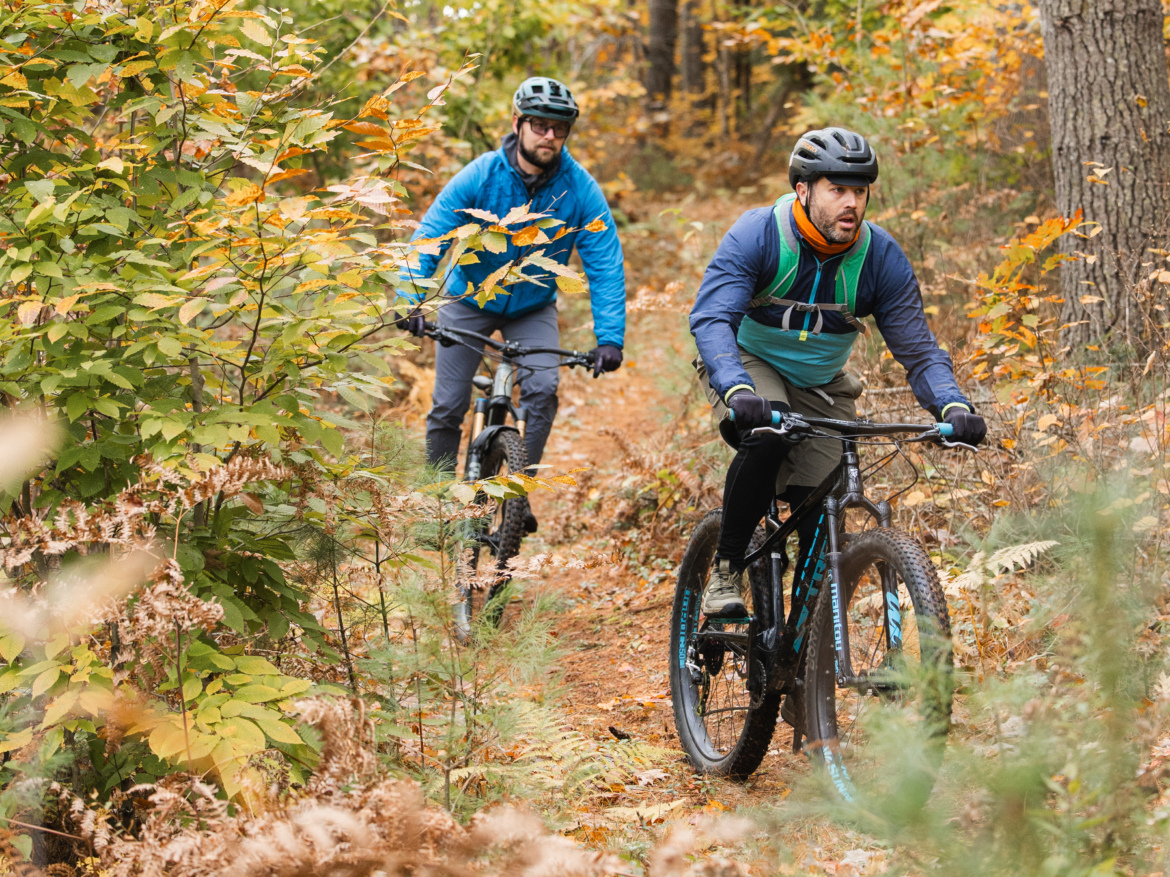
A 400-acre property that’s been in the same family since the 1700s is about to become one of Maine’s newest mountain bike destinations. Rolfe Hill Forest, situated in the town of Casco, just outside Portland, has long been a popular destination for winter recreation and hiking among local residents.
Thanks to the Loon Echo Land Trust (LELT), the land is now permanently protected for public use — and mountain biking is front and center in the master plan.
To learn more about the vision for Rolfe Hill and the trails being designed there, Singletracks spoke to Matt Markot, LELT’s Executive Director, and Steve Kasacek, Director of Trail Development for the Outdoor Sport Institute.
The greater Portland area is becoming a hotbed for mountain biking
Markot told Singletracks that the greater Portland area, including Casco, where Rolfe Hill Forest is located, has experienced huge growth in mountain biking in recent years. “It’s becoming one of New England’s largest mountain bike communities.”
Casco itself is very popular for outdoor activities in general, according to Markot. He said that the town’s population of approximately 2,500 nearly triples during the summer months due to the popularity of the lakes in the area.
The state itself has made significant efforts to facilitate the growth of outdoor recreation. In 2024, residents approved a $30 million trails bond, which provides grants to help Maine nonprofits, municipalities, and qualified entities within state government to design, build, and maintain trails within the state.
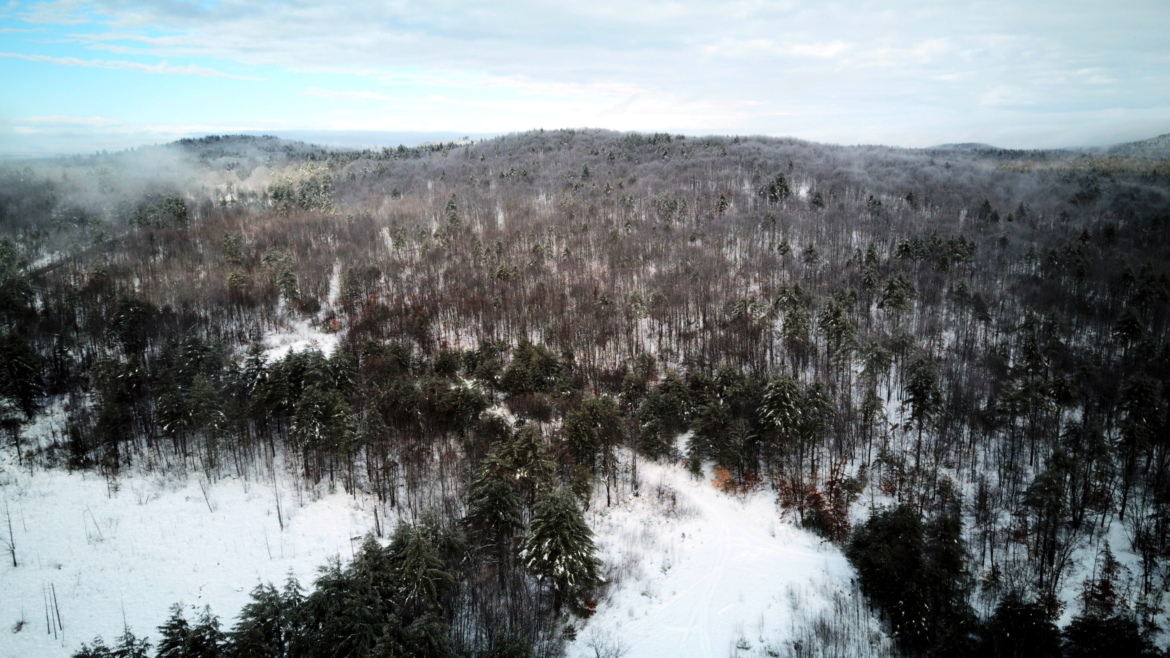
LELT took advantage of the trails bond to purchase Rolfe Hill Forest
Rolfe Hill Forest is the first documented homestead in Casco, owned by the same family since the 1700s. It also lies within the territory of the Abenaki tribe, so it has significant historical and cultural value to the state of Maine.
Banking on the passage of the trails bond, Markot said that LELT engaged in a fundraising effort to purchase the property when the family showed an interest in selling it. The family wanted the property to be preserved and wanted to protect public access.
Using funds donated from several sources, including the Nature Conservancy, the Portland Water District, and several other private foundations and individuals, LELT purchased the 400-acre property for $820,000 in early 2024.
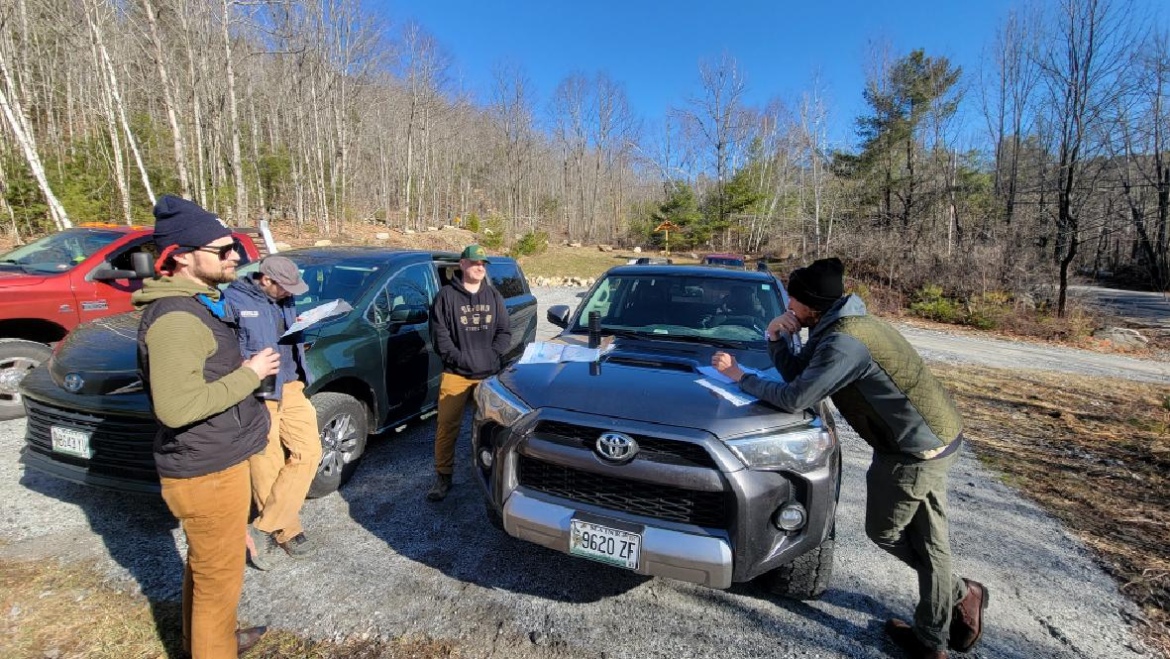
After purchasing Rolfe Hill Forest, LELT focused on creating a plan for trails
Once LELT had purchased Rolfe Hill, it used the remaining funds it had raised to engage the services of the Outdoor Sport Institute (OSI) to design a trail system on the property. According to Kasacek, OSI is a non-profit organization based in Maine that empowers local outdoor communities. They engage in activities like youth programming, education, and designing and building trails.
Markot and Kasacek had mutual connections that brought them together. Prior to joining OSI, Kasacek had been part of IMBA Trail Solutions for seven years and had done a lot of trail planning and design work. Kasacek said that Markot really understood the benefit of planning and designing new trails. They connected in 2023 after Markot saw Kasacek give a presentation at the Maine Outdoor Economy Summit, and Markot contracted with OSI to design the trail system at Rolfe Hill Forest.
Kasacek appreciated the fact that LELT was willing to build high-quality mountain bike trails at Rolfe Hill Forest. “The site is really nice for trails. It has a pretty defined hill and nice hillsides with really nice slopes to work with.” He noted that the hilltop is an open granite ledge with views of Mt. Washington — an ideal spot for a hub-style trail system. Kasacek finished the plan for Rolfe Hill Forest in August 2024 and returned to the site this past spring to conduct field design and layout for the new trails.
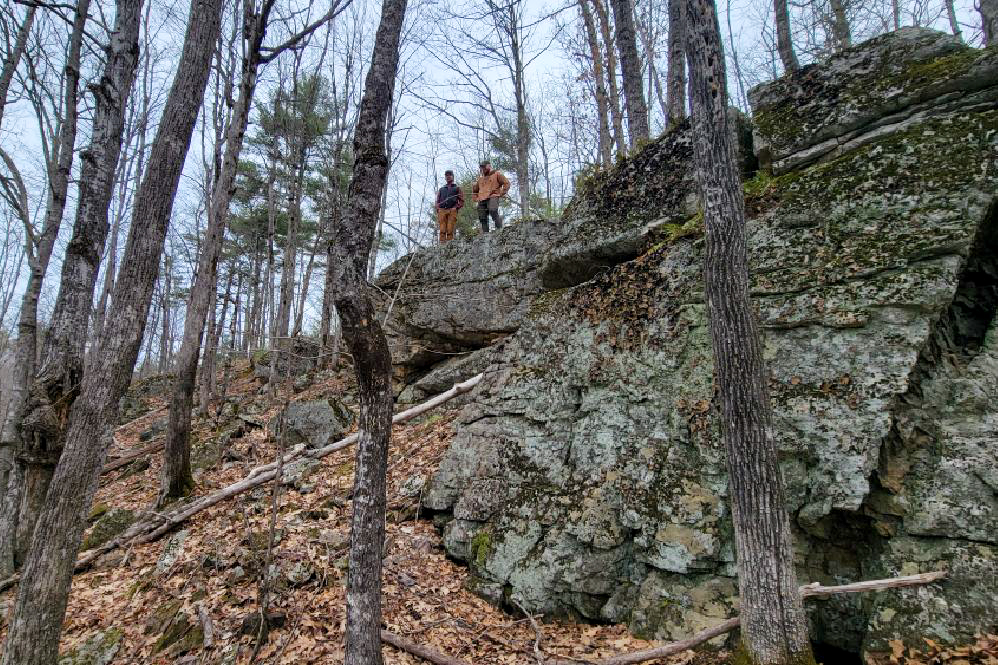
When finished, Rolfe Hill Forest should have trails for every type of rider, including adaptive bikers
As Markot describes it, the plan calls for a modern gravity-style trail system with different levels of downhill trails, along with climbing trails that lead back to the top of the hill. The property has roughly 350 feet of vertical drop, with a maximum elevation of 600 feet. There will also be beginner and adaptive-friendly trails close to the trailhead at the base of the hill, along with cross-country trails.
About a third of the way up the mountain, Kasacek found a knoll with about 150 feet of vertical drop that’ll serve as the starting point for a green-level gravity trail designed for adaptive bike use. “It’ll be a nice intro into gravity riding,” he said.
The top of the hill will feature premium blue and black trails with top-to-bottom runs. Kasacek’s plans call for some of the black trails to have double-black options, thanks to natural rock drops that already exist. He also mentioned that the hill has a plentiful amount of small rocks to use for features and armoring.
As Kasacek described it, the plan emphasizes variety above all else. “We emphasized different flavors of trails, both flow and technical.”
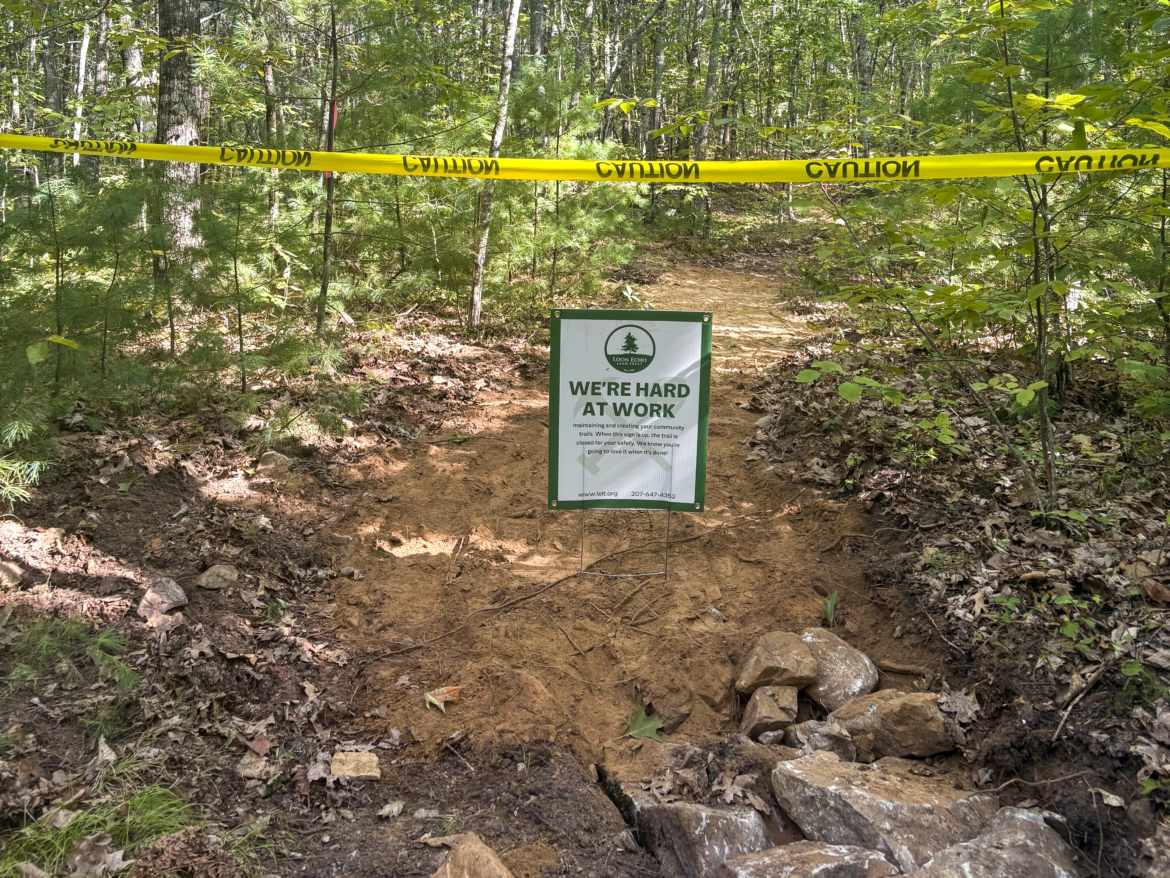
Phase one of the new trail system is currently under construction, but funds are needed to complete it
They just broke ground in September on the first phase of the new trail system. The first trail, a 0.7-mile downhill, intermediate-level flow-tech trail, is expected to be open to the public by the end of October.
The rest of phase one will include a one-mile loop built to adaptive bike standards, two more directional downhill mountain bike trails, and a mountain bike/pedestrian climbing trail to the summit of the hill. Markot hopes that phase one will be completed in 2026. However, LELT needs to secure a grant and raise money for that to happen.
The entire plan, which includes approximately 12 miles of trails, a skills area, and a jump zone, along with a parking lot and kiosk, is expected to cost between $500,000 and $1 million, according to Markot. LELT needs to do a lot of fundraising to make it a reality.
Rolfe Hill is poised to become Maine’s next great trail system
Once completed, the trails at Rolfe Hill Forest will have the potential to attract outside visitors to the area. Markot said that the property is directly adjacent to Casco’s business district. There is even a connector trail that leads from the property to a new brewery.
Markot sees the project as a “really cool opportunity to invest in a modern, sustainable trail system that can be used as an example for the rest of the state.” Kasacek was stoked to be part of the project. He said that Rolfe Hill Forest is an amazing local resource, and the project is a great example of partnership and good planning.

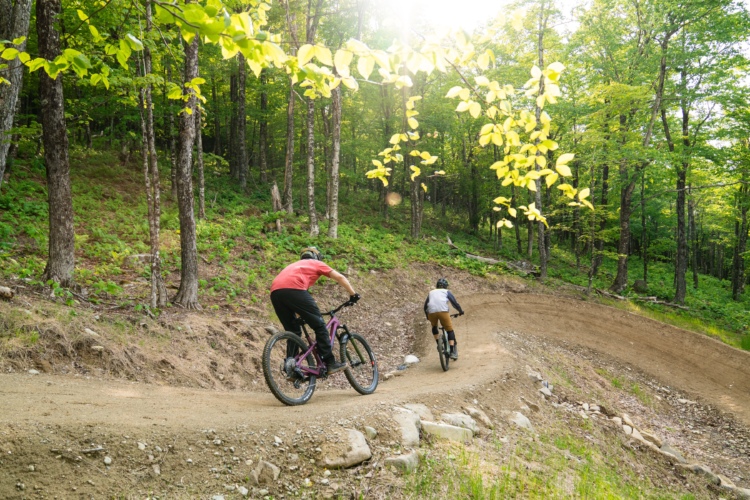

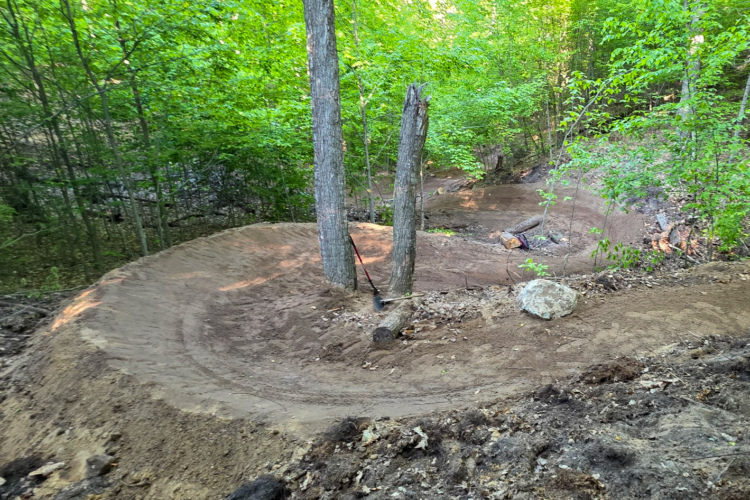
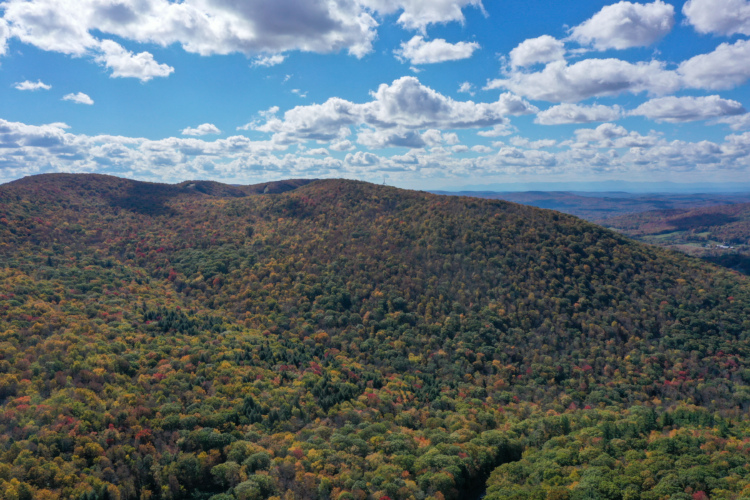
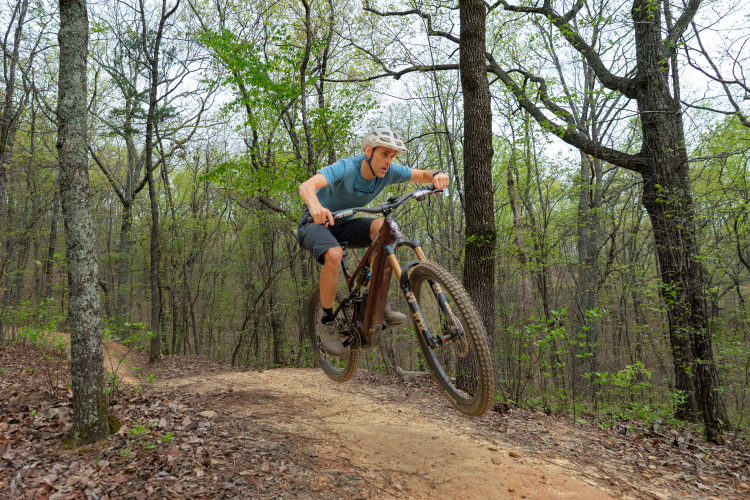
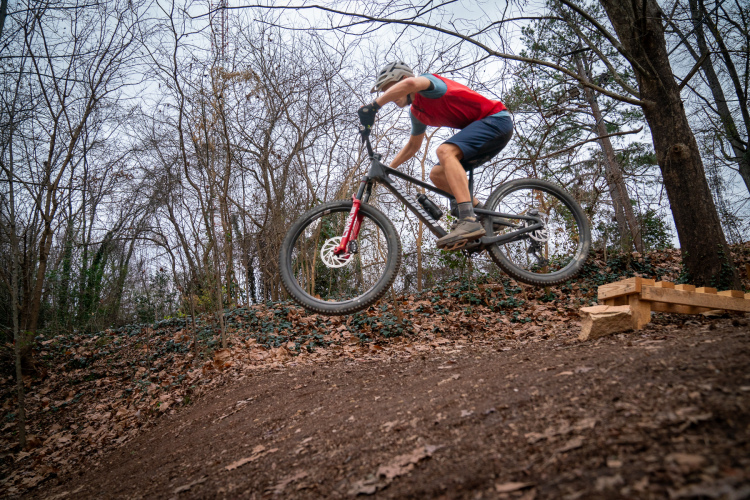
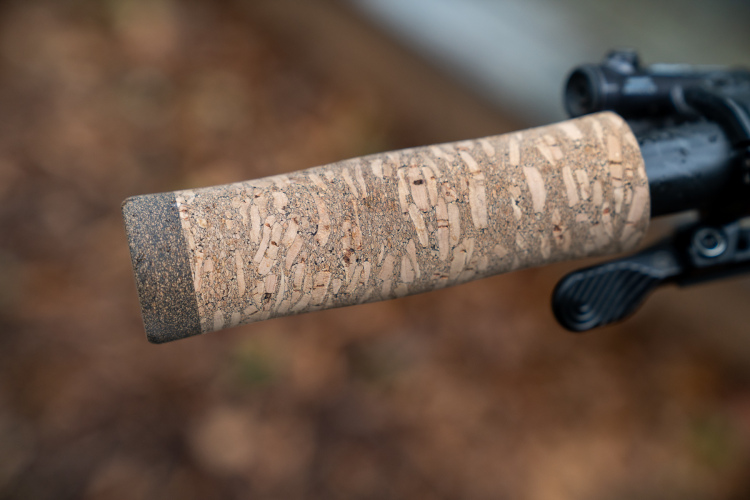


0 Comments